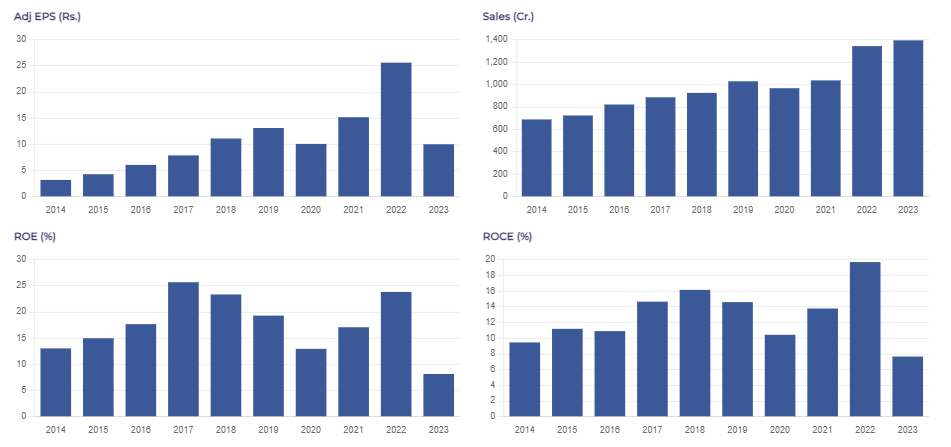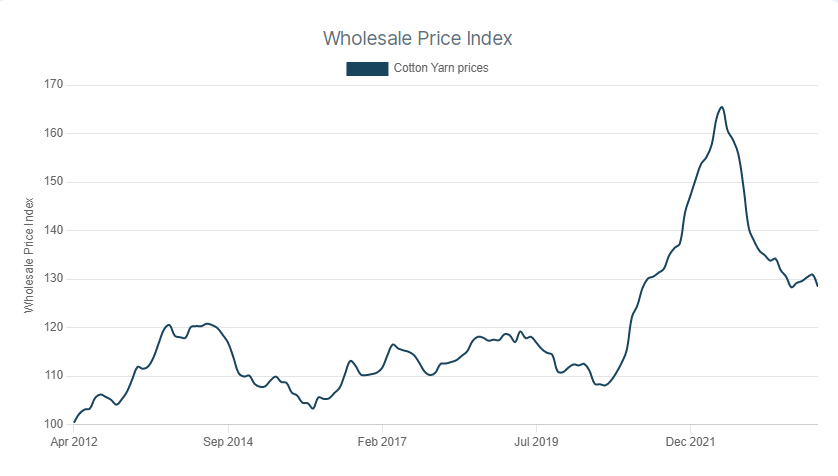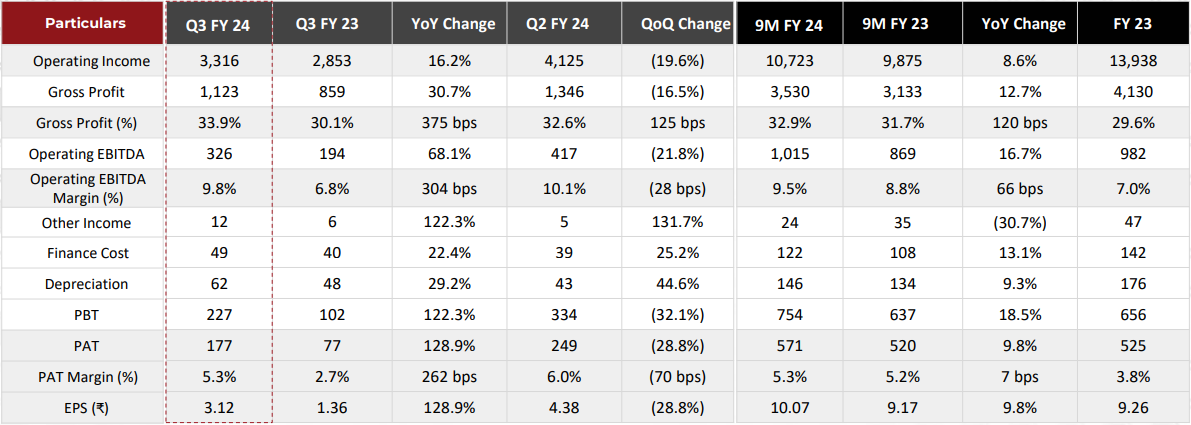Stocks - Q : Quality | V : Valuation | PT : Price Trend
Funds - P : Performance | Q : Quality
Funds - P : Performance | Q : Quality
Dollar Industries Limited (DIL) was founded as Bhawani Textiles in 1973, and is a leading Indian Innerwear manufacturer with a 15% market share in the organized market. The company markets its products under brands such as Big Boss, Force NXT and Lehar, which cater to the economy and mass market segments.
The company has 4 facilities at Ludhiana, Tirupur, Kolkata, and Delhi. The manufacturing is supplemented with an extensive pan-India dealer network of more than 1500 dealers that cater to more than 145,000 retailers across 29 states. The company additionally has 18 Exclusive Brand Outlets.
The company derives 83% of its revenue from menswear, and derives 14% and 3% of its revenue from women’s and children’s clothing respectively. 81% of the company’s revenues are derived from innerwear, while the remaining is derived from outerwear such as athleisure. The company sells products across India, with 44% sales from the North, 23% from East and West respectively, and 10% from the South; along with exports to countries such as Oman, Jordan, Qatar, Kuwait, Bahrain, Yemen, Iraq, Myanmar, Nepal, Nigeria and U.A.E. which contribute 5% to the total revenue.

Source: Dollar Industries Q3FY24 Investor Presentation
The business relies heavily on celebrity endorsements to drive sales, which leads to high advertising and promotion costs. The company spent Rs 101 crores in FY23 (7.3% of revenue) on advertising and promotion by retaining celebrities such as Saif Ali Khan, Akshay Kumar, and Yami Gautam.
The Indian Innerwear Industry is dominated by players such as Page Industries (Jockey), Lux Industries, Dollar Industries, Rupa & Company in the listed space and JG Hosiery (Macho), Dixcy Textiles (Dixcy Scott) and V-Star in the unlisted space. The innerwear market is dominated by a large number of small unorganized players which, as a total, make up 60% of the total market. While unorganized players lack distribution and competitive pricing power, their existence hinders the growth of larger players that target lower-income demographics.
Between FY18 and FY23, the company has grown its revenues at an annualized rate of 8.5%, while PAT has fallen at an annualized rate of 4% owing to slowing sales in FY23 and during Covid-19 and the high cost of raw materials respectively. However, the raw material pressure has eased off over the last few quarters, which has led to an improvement in gross margins and inventory destocking in the channel.


Source: Office of Economic Adviser
While FY23 witnessed high raw material prices and low gross margins, 9MFY23 has shown an improvement in gross margins that are expected to be sustained over a long period.
(In Rs. Million)

Source: Dollar Industries Q3FY24 Investor Presentation
We believe that the future prospects of the company would look remarkably different from the past due to changes in the distribution model which would have an exponential impact on growth, margins, and working capital requirements. The company has hired Vector Consulting to implement a pull-based distribution strategy (called Project Lakshya) under the theory of constraints framework, which would result in improved capital efficiency at the retail, distributor, and company level if successfully implemented. Our thesis is based on the following points:

Source: Dollar Industries Q3FY24 Investor Presentation